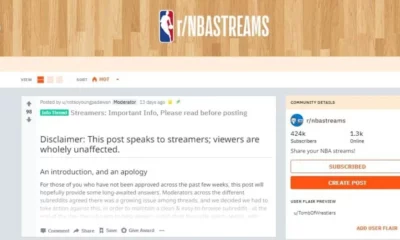WWE SmackDown Episode 1491 delivered a night packed with unforgettable moments, jaw-dropping action, and a few surprising returns. The episode, which aired on [Insert Date], set the stage for exciting new rivalries and brought us major title defenses that left fans on the edge of their seats. As SmackDown builds toward its next pay-per-view, every match, promo, and storyline seems to up the stakes.
In this detailed breakdown, we’ll cover all the standout moments from WWE SmackDown Episode 1491, analyze the key feuds that emerged, and dive into the implications of the night’s biggest developments.
The Road to Crown Jewel Begins
WWE SmackDown Episode 1491 kicked off with an electric atmosphere, as the blue brand inches closer to its next massive event, Crown Jewel. Several matches tonight laid the groundwork for what’s to come, and there’s no doubt that rivalries will intensify as the superstars prepare for the global stage.
The looming presence of Crown Jewel added weight to every encounter, making each victory or loss even more meaningful. Who will secure a spot on this prestigious card, and what match-ups can we expect to see at the event?
Roman Reigns: A Dominant Presence
Roman Reigns continues to reign supreme as the Undisputed WWE Universal Champion. Episode 1491 saw him deliver a powerful message to his future challengers, proving once again why he has held the title for such an extended period. However, the cracks in his dominance were starting to show as certain superstars lined up to challenge his reign. Could this be the beginning of the end for Roman’s historic title run?
Reigns’ segment was interrupted by none other than LA Knight, who has quickly become a fan favorite and an underdog contender. Knight’s fearless challenge to Reigns set the stage for an explosive confrontation, and their interaction hinted at a future showdown that could shake the entire WWE landscape.
Women’s Division Showdown
The women’s division was in full force during SmackDown Episode 1491. IYO SKY, the current WWE Women’s Champion, defended her title against a fierce competitor in Shotzi. The match was a thrilling display of athleticism, and both women put everything on the line.
Shotzi, with her unorthodox style, gave Sky a run for her money. Despite this, IYO SKY showcased her technical prowess and retained her championship after a hard-fought battle. This victory solidifies her status as one of the most dominant women in the division, but with stars like Charlotte Flair and Bianca Belair looming on the horizon, her reign is far from secure.
Tag Team Title Defense: The Street Profits vs. Pretty Deadly
One of the night’s marquee matches featured The Street Profits defending their SmackDown Tag Team Championships against the charismatic duo of Pretty Deadly. This tag team bout was fast-paced and filled with dramatic near-falls, as both teams fought with everything they had.
The chemistry between Montez Ford and Angelo Dawkins was undeniable, and their innovative offense kept Pretty Deadly on their toes. After an exhilarating back-and-forth match, The Street Profits emerged victorious, retaining their titles in a performance that solidified their legacy as one of the top teams in WWE.
The Return of Bray Wyatt
In a shocking moment that had the WWE Universe buzzing, Bray Wyatt made his highly anticipated return to SmackDown in Episode 1491. The eerie atmosphere that accompanies Wyatt was palpable as he made his way to the ring, instantly rekindling old rivalries and sparking new storylines.
Wyatt’s return signifies a major shift in SmackDown’s landscape, as he wasted no time targeting a top-tier superstar: Bobby Lashley. The confrontation between these two powerhouses promises to be one of the most compelling feuds in WWE heading into the end of the year.
Rey Mysterio vs. Santos Escobar: Respect vs. Ambition
The tension between Rey Mysterio and Santos Escobar came to a head in a match that fans had been eagerly awaiting. The two luchadores, both icons of Mexican wrestling, clashed in a match that was equal parts respect and ambition. Mysterio, the veteran, sought to teach Escobar a lesson in humility, while the younger star aimed to prove he could surpass his idol.
Their match was a masterclass in high-flying offense, with Mysterio showing he still has plenty left in the tank despite his decades-long career. In the end, Escobar managed to secure a hard-earned victory, but the post-match handshake hinted at mutual respect, and possibly, an alliance down the road.
Austin Theory’s Ambitions for the United States Title
Austin Theory, the brash and confident rising star, made it clear during WWE SmackDown Episode 1491 that his sights are set on the United States Championship. With Santos Escobar coming off a big win and Rey Mysterio still lingering in the title picture, Theory’s ambitions will not come easily.
He interrupted a backstage interview, claiming that he is the future of SmackDown and that the United States Championship belongs around his waist. Theory’s arrogance may rub some the wrong way, but there’s no denying that he has the talent to back up his words. Expect to see this rivalry evolve in the coming weeks.
Bobby Lashley Dominates in Singles Action
Before his encounter with Bray Wyatt, Bobby Lashley was in action, delivering a dominant performance in a singles match. His opponent stood little chance as Lashley bulldozed his way through the competition, sending a clear message to the rest of the roster that he is ready for any challenge.
Lashley’s power and intensity are unmatched, and with Bray Wyatt back in the fold, SmackDown Episode 1491 sets up what could be one of the most anticipated rivalries of the year.
The Return of the Hurt Business?
During SmackDown Episode 1491, several backstage segments hinted at a possible reunion of The Hurt Business. With Bobby Lashley already dominating as a solo competitor, adding the likes of Shelton Benjamin and Cedric Alexander back into the mix could create one of the most formidable factions in WWE.
Fans have been clamoring for this reunion, and with Crown Jewel on the horizon, the timing couldn’t be better. The Hurt Business could make a significant impact on SmackDown, especially with the chaos brewing in both the men’s and women’s divisions.
Paul Heyman’s Cryptic Warning
At various points during WWE SmackDown Episode 1491, Paul Heyman, Roman Reigns’ trusted advisor, made cryptic comments about potential threats to the Tribal Chief’s reign. Heyman is known for his strategic mind and manipulative tactics, so when he talks, the WWE Universe listens.
His warnings could indicate that Roman Reigns will soon face a challenge he may not be fully prepared for. Whether it’s from a rising star like LA Knight or a returning legend, the future of Reigns’ title reign is starting to look more uncertain.
FAQs
Where did Bray Wyatt return in WWE SmackDown Episode 1491?
Bray Wyatt made his return in WWE SmackDown Episode 1491, interrupting a match and targeting Bobby Lashley, signaling a potential feud.
Who challenged Roman Reigns on WWE SmackDown Episode 1491?
LA Knight fearlessly confronted Roman Reigns on WWE SmackDown Episode 1491, teasing a future showdown between the two superstars.
Did IYO SKY retain her title on WWE SmackDown Episode 1491?
Yes, IYO SKY successfully defended her WWE Women’s Championship against Shotzi in an intense match on SmackDown Episode 1491.
What happened during the Tag Team Championship match in WWE SmackDown Episode 1491?
The Street Profits defended their SmackDown Tag Team Championships against Pretty Deadly in a high-energy match, ultimately retaining their titles.
Was there a major surprise on WWE SmackDown Episode 1491?
Yes, Bray Wyatt made a surprise return, sending shockwaves through the WWE Universe and setting up a potential rivalry with Bobby Lashley.
Who won between Rey Mysterio and Santos Escobar in WWE SmackDown Episode 1491?
Santos Escobar secured a hard-fought victory over Rey Mysterio in their match, though the bout ended in a display of mutual respect.
Conclusion
WWE SmackDown Episode 1491 lived up to the hype, with thrilling matches, shocking returns, and pivotal storyline developments. As the road to Crown Jewel heats up, the stakes continue to rise for every superstar on the roster. From Roman Reigns’ looming challengers to Bray Wyatt’s chilling return, the blue brand is setting the stage for an unforgettable end to the year. Keep tuning in to see how these storylines unfold and who will rise to the top of WWE SmackDown.

 Health1 year ago
Health1 year ago
 Tech1 year ago
Tech1 year ago
 Games10 months ago
Games10 months ago
 NEWS1 year ago
NEWS1 year ago
 Entertainment1 year ago
Entertainment1 year ago
 Games1 year ago
Games1 year ago
 Games1 year ago
Games1 year ago
 Entertainment1 year ago
Entertainment1 year ago








2 Comments